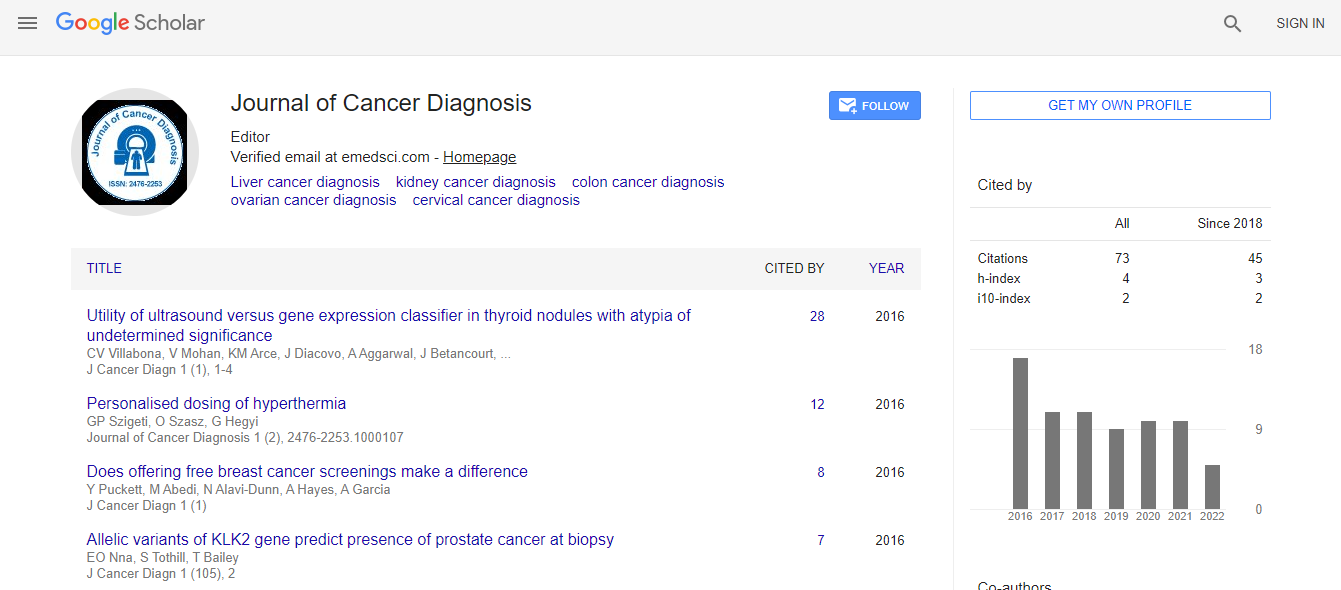CRISPR-Based Molecular Diagnostics for Early Mutation Detection in High-Risk Breast and Ovarian Cancer Patients
*Corresponding Author: Ayesha Kapoor, Department of Molecular Biology and Genetics, Global Institute of Biomedical Research, India, Email: ayesha.k@gmail.comReceived Date: Mar 01, 2025 / Accepted Date: Mar 31, 2025 / Published Date: Mar 31, 2025
Citation: Ayesha K (2025) CRISPR-Based Molecular Diagnostics for EarlyMutation Detection in High-Risk Breast and Ovarian Cancer Patients. J CancerDiagn 9: 292.
Copyright: © 2025 Ayesha K. This is an open-access article distributed under theterms of the Creative Commons Attribution License, which permits unrestricteduse, distribution, and reproduction in any medium, provided the original author andsource are credited.
Abstract
Hereditary breast and ovarian cancers pose significant health challenges due to their aggressive nature and the high mortality associated with late-stage diagnosis. Early detection of pathogenic mutations in high-risk individuals, particularly in genes such as BRCA1 and BRCA2, is critical for improving patient outcomes through preventive and personalized interventions. Traditional genetic testing methods, while effective, face limitations related to cost, turnaround time, and accessibility. The emergence of CRISPR-based molecular diagnostics has introduced a novel, highly sensitive, and rapid approach for mutation detection. Utilizing programmable guide RNAs and the collateral cleavage activity of Cas enzymes, CRISPR diagnostics enable precise identification of cancer-associated mutations even at low allele frequencies in liquid biopsy samples. This review explores the advancements, advantages, and challenges of CRISPR-based molecular diagnostic platforms in the context of early mutation detection for breast and ovarian cancer patients at high genetic risk. It also discusses future prospects, including integration with microfluidics and artificial intelligence, to enhance clinical application and accessibility worldwide.

 Spanish
Spanish  Chinese
Chinese  Russian
Russian  German
German  French
French  Japanese
Japanese  Portuguese
Portuguese  Hindi
Hindi 